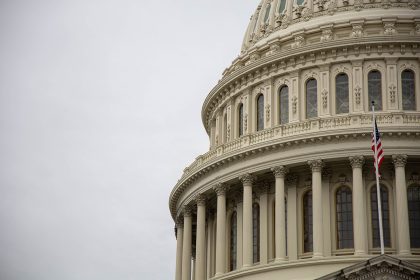It was also revealed that the Senate Minority Leader Mitch McConnell questioned why the government would be spending trillions “when inflation is already sticking American families with higher costs.”
The much controversial and well-debated infrastructural bill pending for days has finally being passed in 69-30 votes in the Senate. The infrastructural Investment and Jobs Act will be forwarded to the House of Representatives for further debate.
The bill aims to upgrade and modernize roads, bridges, water systems, broadband access, and electric grid, starting in 2022.
It also plans to invest $110 on the construction of roads and bridges, $66 billion on the rail, $55/billion for water and wastewater infrastructure, and $39 billion for public transit, adding to billions for airports, ports, and the nation’s first network of electric vehicle charging stations.
In the 2702-pages document, more than 20 amendments have been considered by the Senate. One of such is approved to protect subcontractors on infrastructure projects—and rejected one from Sen. Ron Johnson that sought to block the federal government from ending efforts to build a barrier along the US border with Mexico.
Another such amendment considered is a provision that requires more stringent tax-reporting requirements for companies in the cryptocurrency industry has delayed the bill’s passage. It targets to raise $28 billion in taxes imposed on exchanges like Coinbase Global Inc (NASDAQ: COIN) and others that broker transactions.
The bill clarifies the definition of “broker” for tax-reporting purposes. Recall that the crypto industry opposed this when they perceived its meaning could be misinterpreted, broadly to include crypto miners and other companies involved in operating blockchain networks, along with software and hardware developers.
However, Republican and Democratic senators negotiating on behalf of the bill reached a compromise on Monday to exclude miners and other transaction “validators” from tax-reporting requirements, and the White House supported their amendment.
According to a report, Republican senators have raised concerns on the bill. The senators “criticized the size and scope of the $3.5 trillion proposal, saying that its spending could fuel inflation and that its tax increases on corporations and the wealthiest households could slow growth.”
It was also revealed that the Senate Minority Leader Mitch McConnell questioned why the government would be spending trillions “when inflation is already sticking American families with higher costs.”
While the infrastructural bill will be heading to the House of Representatives, the Democrat-controlled House, what will happen next is unknown. However, the House may try to modify it, but that could be not easy since it could open the bill to other amendments. It may face additional delays.
Per Speaker Nancy Pelosi (D., Calif.) the chamber wouldn’t take up the agreement until the Senate approves a separate, contentious $3.5 trillion bill focusing on other economic priorities, including child care, education and environmental measures. The ultimatum is aimed at unifying Democrats around both bills.
next